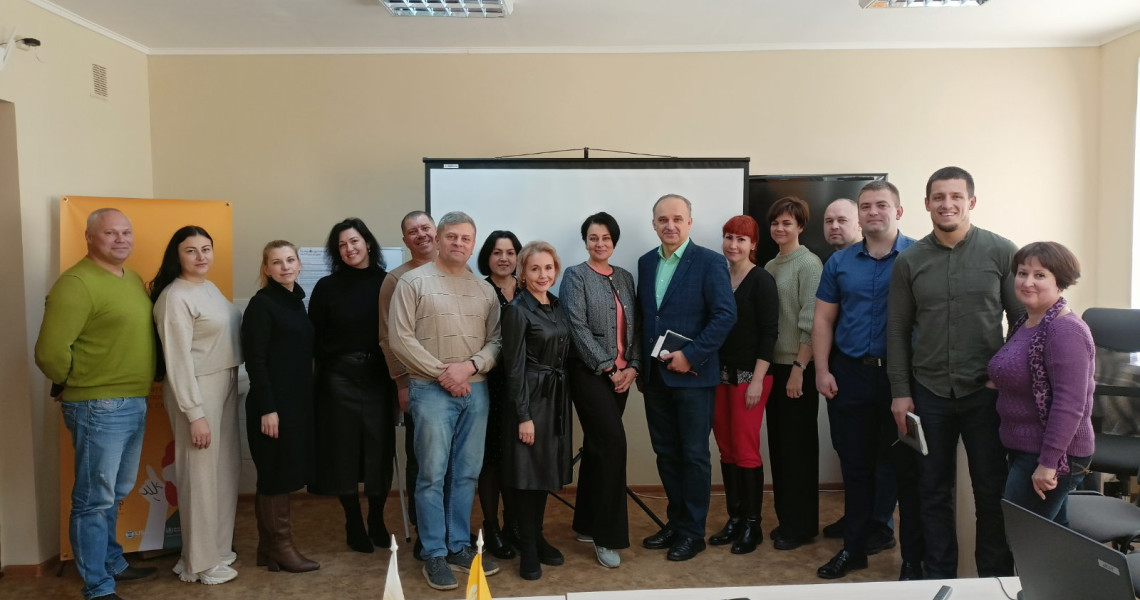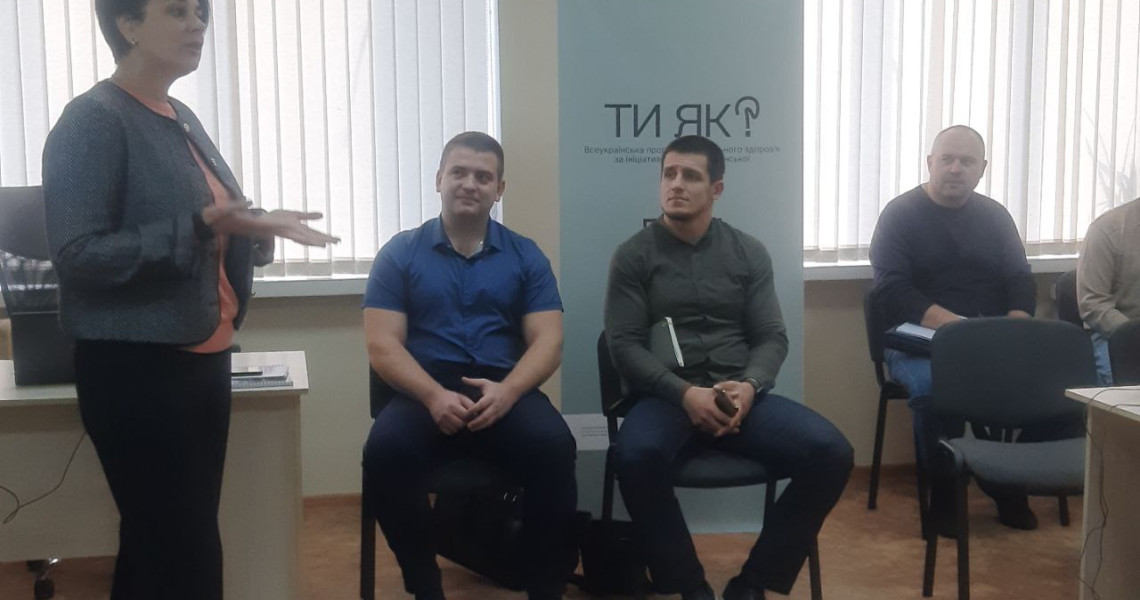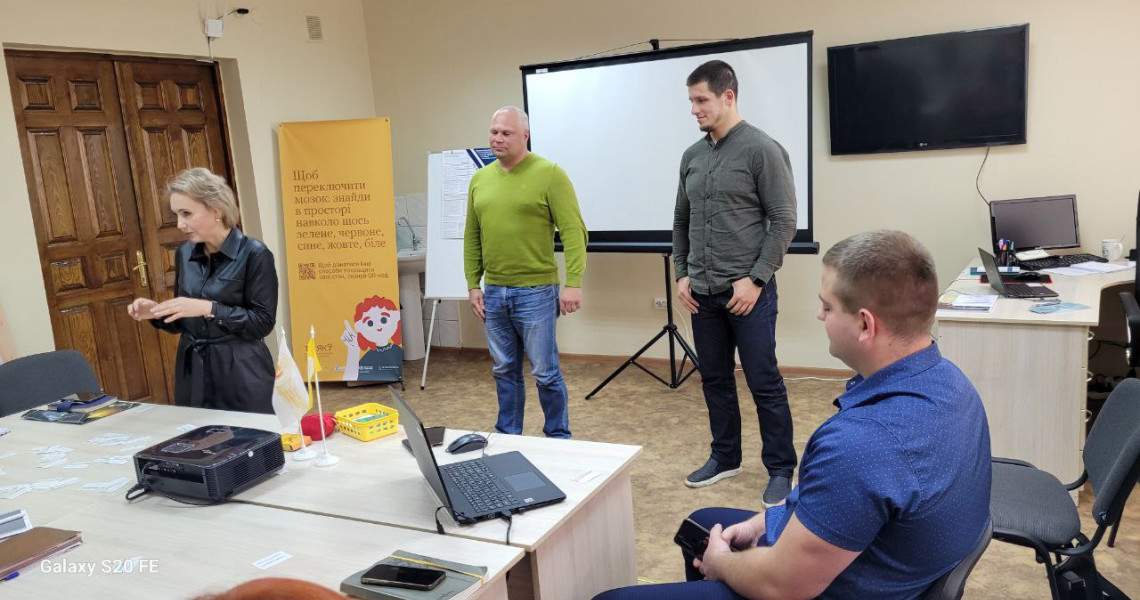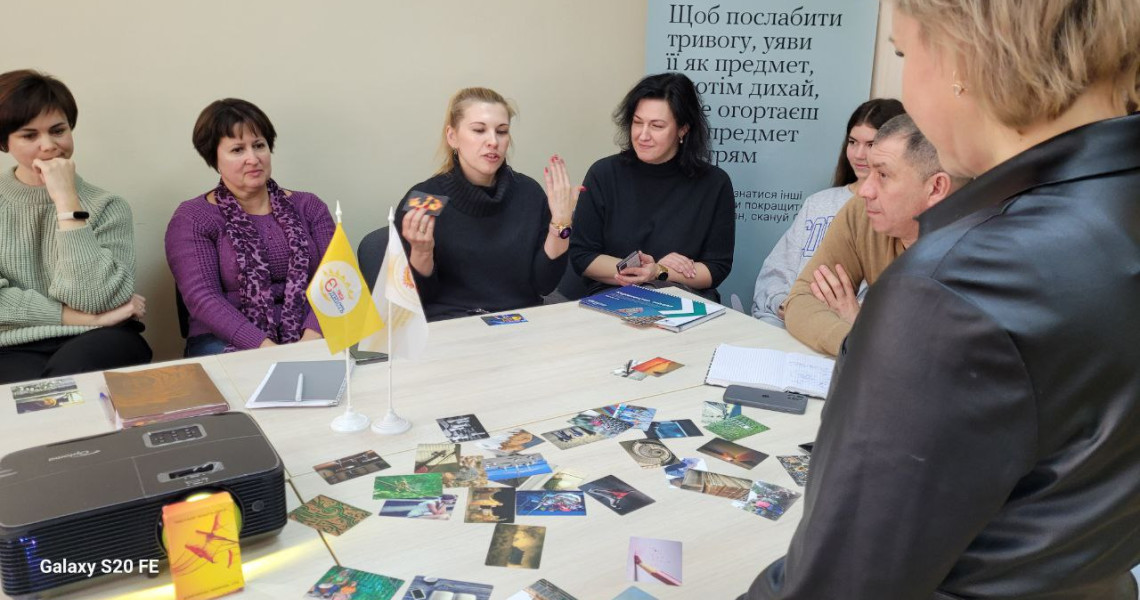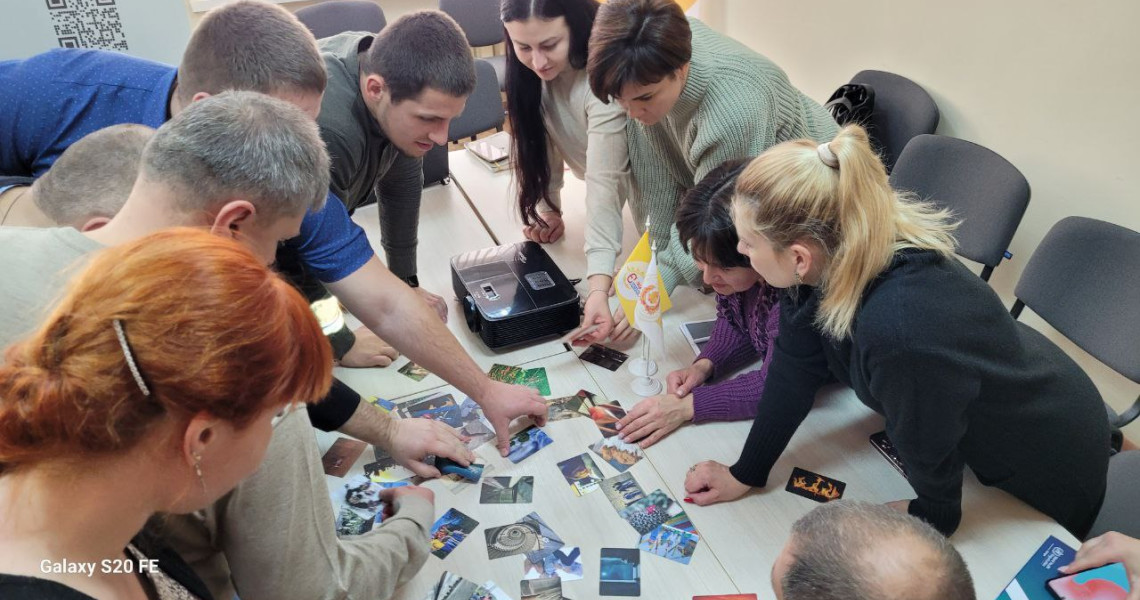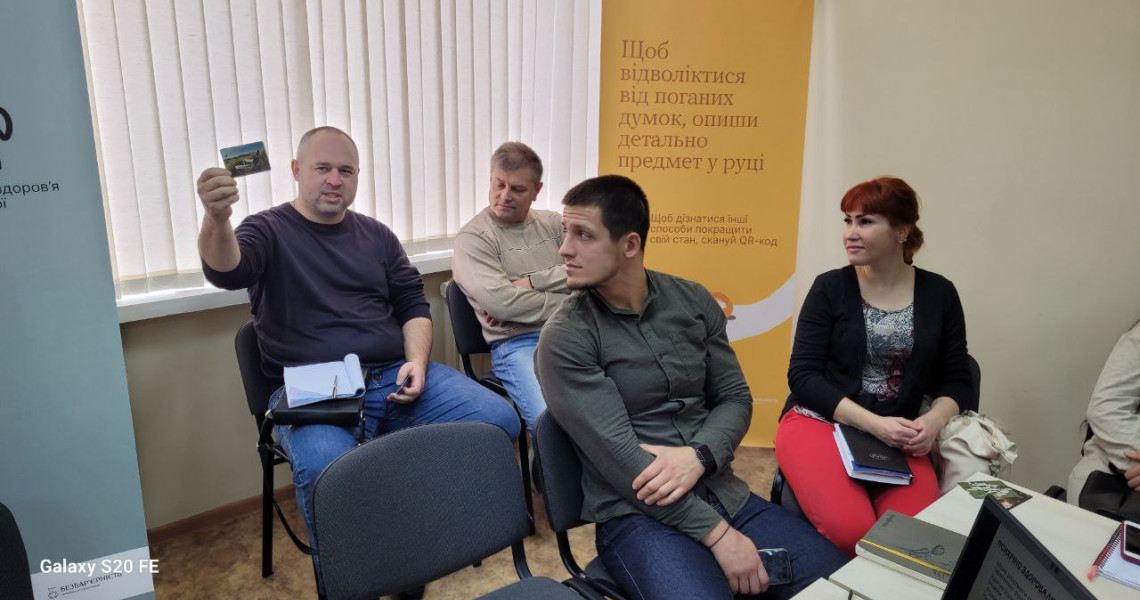У межах реалізації Всеукраїнської програми ментального здоров’я «Ти як?», що впроваджується за ініціативою першої леді Олени Зеленської, для слухачів циклу спеціалізації «Організація та управління охороною здоров'я» Полтавської області (керівники закладів охорони здоров’я), що проходить на кафедрі громадського здоров'я з лікарсько-трудовою експертизою ПДМУ, в Навчально-науковому центрі ментального здоров’я був проведений воркшоп «Ефективна комунікація з ветеранами: розуміння та підтримка».
Ветерани та ветеранки після служби повертаються до своїх громад, наша спільна мета – допомогти захисникам і захисницям відновити їх психічне здоров'я, адаптуватися до цивільного життя, реінтегруватися та реабілітуватися. Тому, зараз дуже важливо здобути навички професійної комунікації з боку людей, які перші зустрічають ветеранів, а саме: медичні й соціальні працівники.
Під час тренінгу учасники навчилися ефективно спілкуватися з ветеранами й ветеранками, зрозуміли їх потреби, визначились, як надавати їм підтримку. Ознайомились з поняттям «ментальне здоров’я», сформували цілісне ставлення до свого здоров’я, розвитку, самоусвідомлення, самоаналізу, самоповаги як необхідних складових здоров’я в умовах сьогодення.
Poltava State Medical University Hosts Workshop on "Effective Communication with Veterans: Understanding and Support"
As part of the implementation of the All-Ukrainian Mental Health Program "How Are You?", initiated by the First Lady Olena Zelenska, a workshop on "Effective Communication with Veterans: Understanding and Support" was conducted at Poltava State Medical University. The workshop was organized for participants of the specialization course "Organization and Management of Healthcare" in Poltava region, which includes healthcare facility managers. This program is part of the Department of Public Health with Medical Expertise of Work Ability at PDMU.
The workshop, held at the Mental Health Education and Research Center, aimed to provide skills for professional communication, particularly for medical and social workers, with veterans returning to their communities after their service. The common goal is to assist these defenders in restoring their mental health, adapting to civilian life, reintegrating and rehabilitating.
During the training, participants learned effective communication techniques with veterans, understood their needs, and identified ways to provide support. They were introduced to the concept of "mental health" and developed a holistic approach to their health, emphasizing the importance of development, self-awareness, self-analysis and self-respect in today's reality.






